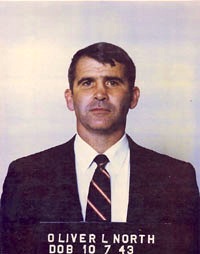Today the New Mexico Supreme Court announced its approval of amendments to the Rules Governing Admission to the Bar, which will allow attorneys who are already admitted to practice law in other states to be admitted to the New Mexico bar without taking the bar exam. The rules go into effect on June 1, 2015 (N.B. as of the time of this writing, the Compilation Commission’s website erroneously states that the amendments will go into effect on June 1, 2014, but I expect that error will be corrected soon).
Kudos are due to our Justices for deciding to join the 40 or so other states which allow admission by motion to attorneys who have already passed the bar exam elsewhere. As I explained in this post last July, requiring experienced attorneys to take the bar exam all over again was an antiquated, unnecessary requirement.
Below is the text of an e-mail from Joey D. Moya, Clerk of the Supreme Court, announcing the change:
“Dear Members of the New Mexico Bench and Bar:
“The Supreme Court of New Mexico announced today the adoption of a new process for admitting experienced attorneys from other jurisdictions into the New Mexico bar without requiring those attorneys to take the New Mexico bar exam. By adopting this new method for admitting attorneys, New Mexico joins the majority of other states in the country who have adopted similar procedures. The new process, known as reciprocal admission by motion (sometimes also called reciprocity for short), does not go into effect until June 1, 2015, to allow those entities responsible for administering the new process adequate time to prepare.
“The Court’s decision to adopt reciprocal admission by motion is the culmination of an extensive process that began almost one year ago when the Court’s Board of Bar Examiners submitted a recommendation to adopt reciprocity in New Mexico. The Court published the Board’s proposal last year for an extended period of public comment and received a large volume of comments from attorneys and the general public. The Court then sent the comments back to the Board of Bar Examiners for further review and a final recommendation, which was submitted to the Court at the end of last year. After a careful review of the comments received and the Board’s final proposal, the Court announced today its intention to implement reciprocity in New Mexico next year with some minor revisions to the final proposal submitted by the Board of Bar Examiners.
“The Supreme Court considered adopting reciprocity several years ago but decided not to adopt the practice at that time. Since then, with advances in technology and communications along with the expansion of the global economy, the transboundary nature of the practice of law has continued to grow and fostered support for the adoption of reciprocity in New Mexico. By allowing experienced attorneys from other states to be admitted in New Mexico without having to take the bar exam again, the Court has also made it possible for New Mexico attorneys to seek admission in reciprocal states without having to take another bar exam. Ultimately, by making it easier for attorneys to practice law in multiple jurisdictions, the Court hopes to improve the quality and quantity of legal services available to New Mexico citizens in need of help.
“While the public comments received by the Court revealed widespread support among members of the bar and the business community for the proposal, a significant number of comments from members of the bar also voiced strong opposition to allowing reciprocity in New Mexico. Among the concerns expressed were fears that an influx of attorneys from surrounding states would have an adverse economic impact on the legal market in New Mexico, but those comments were countered by many other members of the bar pointing out that increased competition and mobility within the legal profession would enhance the quality and quantity of legal services provided to New Mexico citizens while at the same time enhancing the opportunities available to New Mexico attorneys. Some opposed to reciprocity also expressed concern that allowing permanent admission to out-of-state attorneys unfamiliar with the local customs and courtesies of the New Mexico bar would be detrimental to the collegiality and professionalism enjoyed by New Mexico attorneys. Others also expressed concerns that out-of-state attorneys who do not take the New Mexico bar exam but are allowed to practice here might not be competent to provide legal representation in matters involving unique provisions of New Mexico law. To address these concerns, the new reciprocity process will require out-of-state attorneys to complete a special educational component to address matters unique to New Mexico law and norms of practice before they can be admitted to the New Mexico bar. The new reciprocity process also will enhance the Supreme Court’s ability to enforce its ethics rules and disciplinary authority over out-of-state attorneys who practice law in New Mexico.
“The new reciprocity rule amendments and Supreme Court order can be viewed on the New Mexico Compilation Commission’s website at http://www.nmcompcomm.us/nmrules/nmruleset.aspx?rs=15, and the original proposal and public comments can be viewed on the Supreme Court’s website at https://nmsupremecourt.nmcourts.gov/rules/archive.php.”
Joey D. Moya
Clerk of Court and
Chief Counsel
Supreme Court of New Mexico
P.O. Box 848
Santa Fe, NM 87504
505-827-4860




